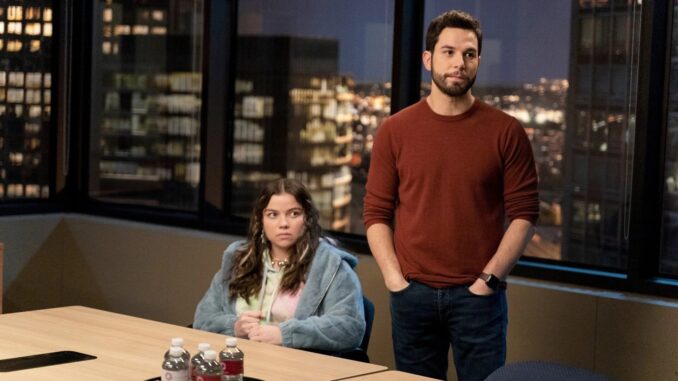
The Unbearable Wait: Echoes of Distress and Hope After the So Help Me Todd Cliffhanger
The final chords of the season one finale of "So Help Me Todd" haven’t just faded; they’ve reverberated across social media, online forums, and whispered conversations, leaving a trail of anxiety, speculation, and fervent hope in their wake. The cliffhanger, a potent mix of personal betrayal and professional peril, has ignited the fan base, transforming them from casual viewers into armchair detectives and fervent advocates for their beloved characters. The digital landscape is awash with declarations of disbelief, frantic theories, and desperate pleas for renewal, painting a vivid picture of how deeply this quirky legal drama has burrowed its way into the hearts of its audience.
At the heart of the fan outcry is the gut-wrenching revelation of Todd's betrayal. The image of Margaret, her stoic facade crumbling as she confronts the evidence of his tampering with her case, is burned into the collective memory. "I literally screamed at my TV!" one Redditor exclaimed, capturing the visceral reaction of many. The betrayal hits harder because of the complex, evolving relationship between mother and son. Fans invested in their dynamic, witnessing their tentative steps towards understanding and respect. Now, that progress feels precarious, threatened by Todd's impulsive, albeit well-intentioned, actions. The prevailing sentiment is a mix of anger at Todd's lapse in judgment and empathy for Margaret's hurt. "He just messed up everything!" one fan lamented, reflecting the widespread frustration at Todd's self-sabotaging tendencies. Yet, woven into the anger is a thread of understanding, a recognition of the vulnerabilities that drive Todd's behavior and a yearning for him to learn from his mistakes.
Beyond the familial drama, the cliffhanger also dangles the professional futures of Todd and Margaret over the precipice. Margaret's potential disbarment looms large, casting a shadow over her hard-earned career and the reputation of her firm. This threat has ignited a protective instinct in the fans, who see Margaret as more than just a formidable lawyer; she's a symbol of resilience and female empowerment. "They better not ruin Margaret's career!" a Twitter user declared, echoing the collective concern for her well-being. Similarly, the precariousness of Todd's future as an investigator fuels the anxiety. Will he be able to redeem himself? Will he face legal repercussions? These questions hang heavy, driving fans to meticulously analyze every detail of the finale, searching for clues and crafting elaborate scenarios.
The internet has become a breeding ground for theories. Some are optimistic, predicting a clever legal loophole that will save Margaret. Others are more pessimistic, envisioning a protracted legal battle with potentially devastating consequences. One popular theory posits that Todd’s actions, while ethically questionable, ultimately led to exposing a larger conspiracy, thus providing a justification for leniency. This hope for redemption underscores the audience's desire to see Todd evolve and finally embrace his potential. The sheer volume and variety of these theories highlight the fans' deep engagement with the show's plot and characters. They're not just passive viewers; they're active participants in the narrative, dissecting clues, connecting dots, and investing emotionally in the outcome.
Ultimately, the fan response to the "So Help Me Todd" cliffhanger is a testament to the show's success in crafting compelling characters and storylines. The cliffhanger has achieved its intended purpose, leaving viewers on the edge of their seats, desperate for answers. But it's more than just suspense; it's a deep emotional investment in the characters' fates. The fans aren't just waiting for the next episode; they're actively advocating for the show's survival, hoping for a resolution that honors the complexities of the mother-son relationship and the professional integrity of the legal world they've come to admire. The collective wait is agonizing, but it's also a powerful display of the transformative power of television, reminding us that stories, when told well, can forge genuine connections and inspire unwavering loyalty. The echoes of distress may be loud now, but beneath them lies a persistent hum of hope, a belief that justice, in all its quirky and unpredictable forms, will ultimately prevail.
